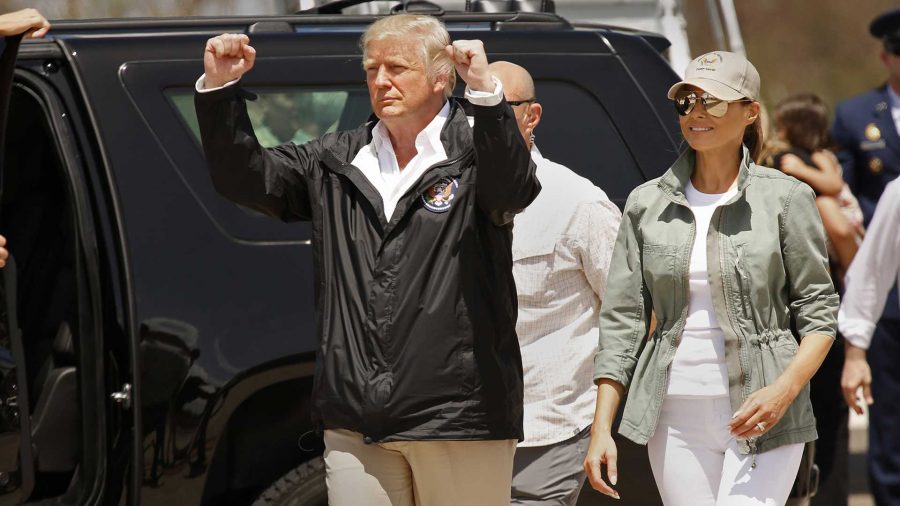In the wake of Hurricane Maria, Puerto Ricans have been treated as second-class citizens.
By Constance Judd
[email protected]
Contrary to popular belief, Puerto Ricans living either on the mainland or Puerto Rico are U.S. citizens; however, that does not stop the false conception from solidifying the belief that Puerto Ricans are second-class citizens.
On Sept. 20, Hurricane Maria made landfall on the small island as a Category 4 storm, making the hurricane one of the strongest to hit the island in the past century. The storm left many stranded without food, water, or shelter. In the initial days following the storm, however, there was little to no effort on the part of the federal government to bring the small island some relief, even though Puerto Rico is a part of the U.S.
Regarding President Trump, he has done nothing but belittle the island by reinforcing the concept that Puerto Rico is nothing but a nuisance to the U.S. Upon his arrival on the island to survey the damage and interact with the people, Trump made the offhand comment that Puerto Rico has done nothing but put a strain on the budget of the Trump administration, alongside the notion that the hurricane was not so devastating as Katrina. Not to mention throwing supplies to the citizens as if they were animals.
RELATED: Iowa security National Guard to assist in Puerto Rico
When speaking with Puerto Ricans on campus regarding the overall treatment of Puerto Rico, I have come to the conclusion that Puerto Ricans who live either on the island, or in the continental U.S., indeed feel as if they are second-class citizens not only because of the biased perspectives the media have conceptualized but because of the ambiguity that surrounds Puerto Rico’s status in regard to the island either being a territory or a state.
Throughout the history of the complicated relationship between the U.S. and Puerto Rico, there have been numerous initiatives in which Puerto Rico has attempted to become a state; however, there has been little to no initiative on the part of Congress to make that transition official. Which, in turn, has constantly reinforced the idea that Puerto Rico is not a priority for the U.S. agenda. While Puerto Rico is not a state, its residents are expected to pay most U.S. taxes just as residents of the states. Thus furthering the notion that Puerto Rico’s only use for the U.S. is that of a commodity and nothing more.
Either way, it is crucial to understand that while Puerto Rico may not be a state, we as Americans owe it Puerto Rico, our fellow citizens, to come to their aid in the same way that we have for those in Texas and Florida. It is a shame that as a country we continue to look down on Puerto Rico in its time of need as if the safety and well-being of the citizens there is nothing more than an offhand joke.
Simply, something needs to change, and change soon.



